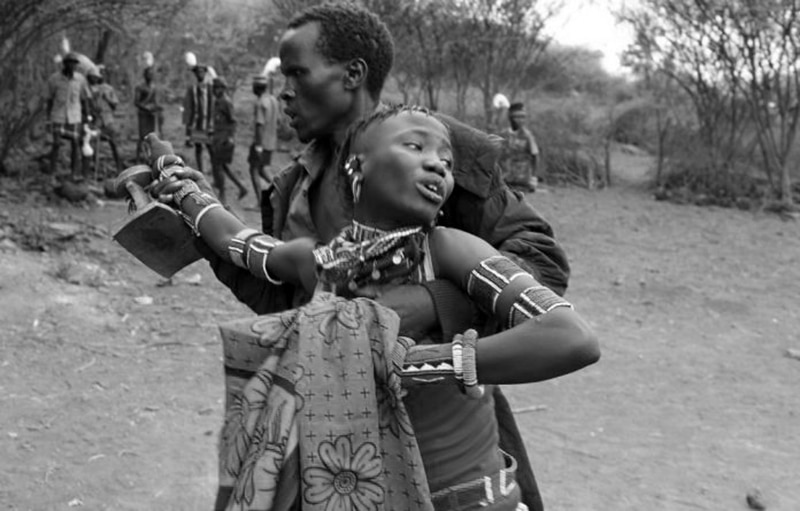Snapshot: The Benefits of Investing in Tanzania Girls
Get to Meet Mwajuma
Mwajuma was 15 years old when her family informed her that she would no longer be attending school since she would get married. Like many other Tanzania girls, she never raised an objection. Several of her classmates had, in the same way, had their educations cut short and were now focusing on their own families. She didn’t object either to the fact that she would be the second wife, as this was also typical among her friends. The marriage, however, did not last.
Mwajuma, 23 years old, works as a domestic helper in Dar es Salaam, where she fled after her marriage became intolerable. She intends to gather enough savings to reunite with her two kids, her six-year-old son and a four-year-old daughter, who are currently residing with her husband’s mom.
“Even though I was never given the opportunity, my objective is to guarantee that my children finish their studies and don’t end up like me,” said Mwajuma.
In Tanzania, Mwajuma’s experience is not uncommon. Almost one-third of all Tanzania girls marry before they turn 18. Nearly one-fourth of all girls have their first kid before they turn eighteen. As a result, just about one out of every four girls completes high school.
Progress on Reducing Early Marriages for Tanzania Girls
In the last few decades, progressive steps have been made to reduce Tanzania girls‘ marriages and expand access to quality education for males and females. Fee-Free Basic Schooling Policy and other government efforts should greatly enhance outcomes for girls. However, progress toward ending child marriage as well as improving secondary school educational achievement is still too slow for Tanzania to meet the SDG [Sustainable Development Goals]. Tanzania girls continue to score poorly in comparison to other Eastern and Southern African nations.

There is much more that can be accomplished to maximize the benefits of investing in Tanzania girls.
The eleventh Tanzania Economic Report reveals a link between girls’ educational achievement, underage marriage, and early childbirth. It is pretty tricky for a girl to continue her education once she is married. In fact, less than 1 percent of girls aged fifteen to nineteen are both in school and married. Keeping young girls in school, on the other hand, is arguably the best approach to reduce early Tanzania girls’ marriages and, indirectly means, a reduction in early childbirth, as child marriage is really the likely source of almost two-thirds of all cases of early pregnancy. Ending early child marriage and attaining universal secondary school completion for Tanzania girls might reduce fertility rates by more than a quarter in Tanzania, lowering population growth and rising living standards through increased GDP per capita.
Implications
Education for Tanzania girls, underage marriage, and early childbirth have significant implications for a variety of other development aspects. Limited schooling, early marriage, and childbearing can have a variety of consequences for girls’ lives, including health issues, larger households, and lower adult incomes. According to statistics, because these Tanzania girls marry so early and lack proper education, they are at a greater risk of domestic violence as well as lack the power to make decisions in their homes. This can have a damaging influence on their offspring; estimates reveal that when other factors impacting under-five stunting are taken into account, young mothers in the United Republic of Tanzania are at a greater risk.
Ending under-aged marriage would have significant economic benefits for both Tanzania girls and society as a whole. By reducing population growth and fertility rates, eliminating early marriage could produce $5 billion in yearly purchasing power within fifteen years, according to the update. Furthermore, the drop in wages for adult ladies working today as a result of their previous marriages as children is estimated to be more than USD 600 million.
Investing in enhancing access to good healthcare services and education, as well as the overall quality of these services, would be necessary to put an end to early marriage and keep Tanzania girls in school. However, governments may save money in the future if population growth slows, easing pressures on fundamental services [such as education and health] for huge groups of new kids and students. Budget savings from decreased population growth might be re-invested to improve service quality, strengthen human capital, and generate additional economic advantages, all of which are necessary for Tanzania to achieve middle-income status.
A recent state study highlighted the multiple factors of early marriage, early childbirth, and low educational achievement for Tanzania girls. Poverty, gender inequity, and social standards all have a role. On the other hand, Tanzania has demonstrated in the recent past that it is capable of making significant progress in abolishing damaging traditional practices. In the case of female genital circumcision, this has been done. It is also possible to do so with early marriage.
One of the most critical investments Tanzania can undertake for its long-term SDG [sustainable development goal] is to invest in teenage Tanzania girls by stopping early marriage and educating females. Allowing all girls to continue in school and finish their high school education should be a primary goal. Furthermore, providing teenage girls with the necessary life skills will empower them all through their adult lives and will benefit future generations.
For more articles related to Laws of Tanzania (Acts), click here!



























